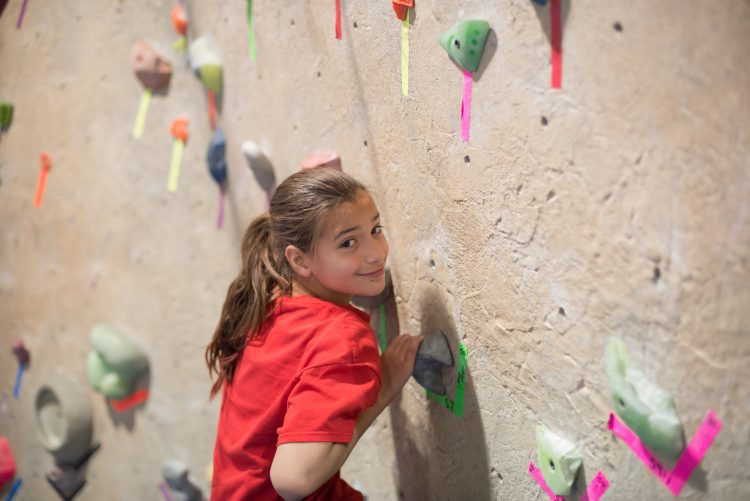Building Resilience, Essential Kids Blog, Maggie in the Media, Play & Nature Play, Posts for Parents, Posts for Teachers
The risk of not letting our children take risks

Lenore Skenazy, author of Free Range Kids, has been fighting against laws in the US that seek to punish parents who do things like let their children play in a nearby park without supervision, whose children make undue noise in the streets or who use sharp woodworking implements in kindergarten.
Does that make you chuckle a little and feel grateful you live in Australia?
Sorry to disappoint you but this terror of over-protecting children is happening in more and more pockets across our nation.
In Queensland it is illegal to ride to school on a bike under 12 years of age.
In NSW, police have been lecturing parents who let their children walk to school alone.
In WA last week, a school ban on handstands and cartwheels made news around the country.
And it is very common for schools to have a ban on things like climbing trees, or sliding down slopes, just to keep kids safe.
No parent wants their child hurt, anywhere, anytime! However this fear may be shaping the decisions we make around what we feel comfortable with allowing our kids to do and in turn negating our children’s capacity to grow brave and resilient.
Statistically, our world is safer now than 30 years ago, however with our 24/7 media cycles and the digital world we are being conditioned to believe there are child kidnappings happening often, kids are being killed on our roads and theme parks, and there are potentially dangerous strangers everywhere.
The fact is over 90% of those who abuse and hurt our children are people they know, so we need to teach our children about body safety from around four, according to the experts. There are plenty of resources to help teach our kids about their body’s early warning systems and what to do to stay safe.
A very experienced preschool teacher shared a story with me about when she enrolled a new 5-year-old student. When shown the woodworking bench with real tools the boy’s mother gasped and said she never wanted her son to play in this area.
Perplexed, the teacher asked why? The mother’s response was “He will get hit in the head by a hammer!” The teacher paused and said “In 40 years of working with children I have never seen a child hit in the head with a hammer – ever”. She then suggested that as this was a valuable part of their program this mother may need to consider choosing another preschool.
The lad was left for a trial day and he spent that day working hard on the woodwork bench making a boat. He learned how to use the tools very safely and was deeply absorbed all afternoon. He was very proud of his boat that he took home that afternoon.
The next morning the mother came and spoke to the teacher: “I owe you an apology. My son positively glowed last night with what he learned about using tools and he was so proud of the boat he made. I am so sorry I was so scared to let him take these risks with your guidance. He is staying here”.
Children are biologically wired to take risks and to learn how to become more competent. They like to test themselves – to climb higher, to explore further and run faster.
Dr Peter Gray, an evolutionary biologist, has studied play deeply and he has shared research that shows that when allowed to play freely without adult supervision children instinctively take themselves to the edge of their own fear and become a little braver.
This may be one reason why there are more injuries in our safe, manufactured playgrounds than in the older more dangerous ones, as discovered by No Fear author Tim Gill in the UK.
He found when children get to the top or edge of their fear and there is nowhere to go to stretch – they often do dangerous things by using the equipment inappropriately.
Gill has been a leader in creating risk benefits assessments in schools and communities because once we explore the benefits that may be gained from taking risk – the list of risks suddenly shrinks!
Daniel Burton from Educated by Nature in WA has been discovering some wonderful insights through the nature-based playgroups his team of mentors have been running for the past two years.
Children tell them they are so hungry to play freely with other children away from their busy structured lives, and in the company of respectful, calm grown-ups.
The mentors are available to teach the skills that the kids identify that they need – when they need them. This allows children to take self-directed risks and gives them the freedom to be truly autonomous.
So essentially, it seems all these experts are singing from the same song sheet.
By preventing our kids from taking risks we risk them never growing to be independent, brave, capable, resilient and much happier.
We need to reign in our irrational fears and embrace risk as being an essential need of all children.
Maggie Dent is a parenting author, educator, resilience specialist, mother of four sons and a grateful grandmother. Maggie is the author of 10 books, including the recently published second edition of her bestselling book, Real Kids in An Unreal World.
Image credit: ©️ vallejo123 /Adobe Stock – stock.adobe.com



